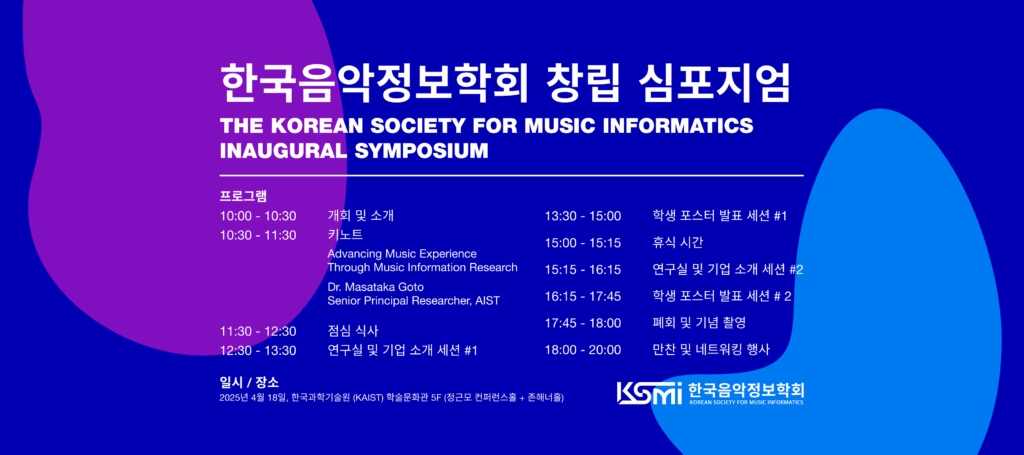
On April 18th, Korean Society for Music Information (KSMI) hosted its inaugural symposium at Korea Advanced Institute of Science and Technology (KAIST). The event brought together researchers, students, and industry professionals from across Korea and beyond, all sharing a passion for music information research. AIRIS members also participated in the event to share ideas on music information research in today’s AI-driven world.
Keynote Session: Advancing Music Experience Through Music Information Research by Dr. Masataka Goto
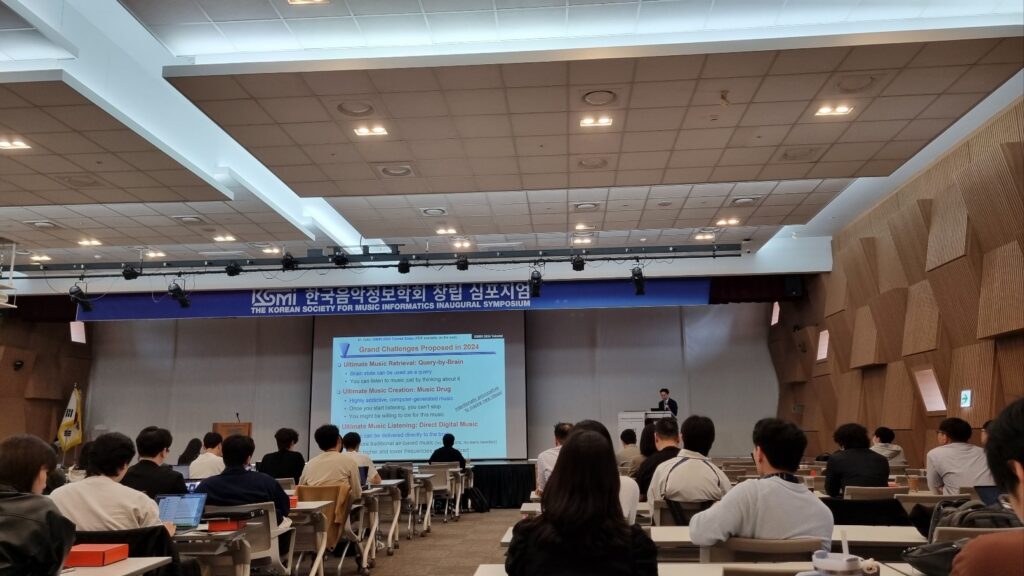
Highlight of the symposium was the keynote session delivered by Dr. Masataka Goto, Senior Principal Researcher at AIST. Dr. Goto’s talk, titled “Advancing Music Experience Through Music Information Research,” offered an inspiring overview of how technological innovation is transforming the ways people create and enjoy music. He introduced several pioneering projects, such as “Lyric Apps,” which blend lyric-driven visual art with interactive user experiences, and “TextAlive App API,” a web-based framework that has sparked creativity through annual programming contests.
Research Presentation Session by AIRIS Members
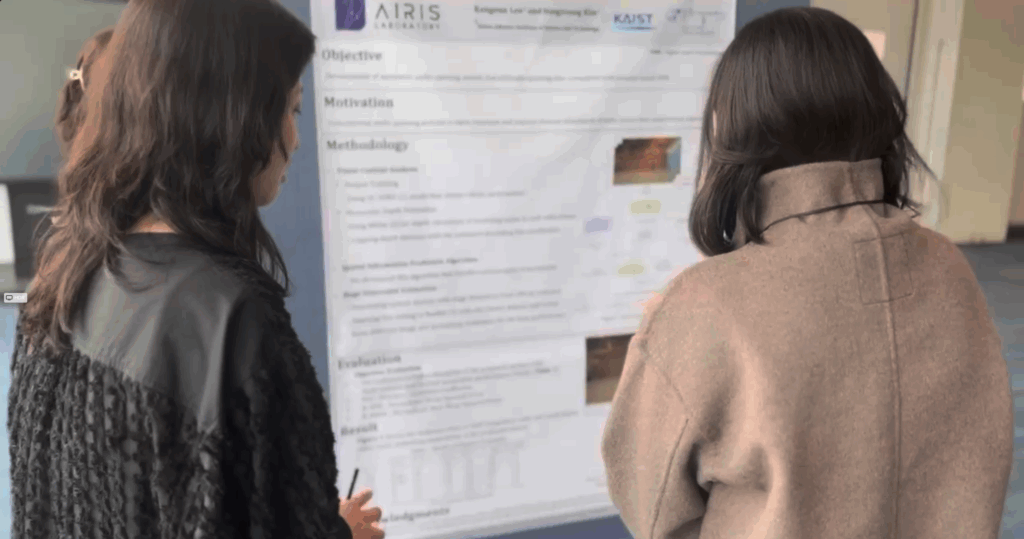
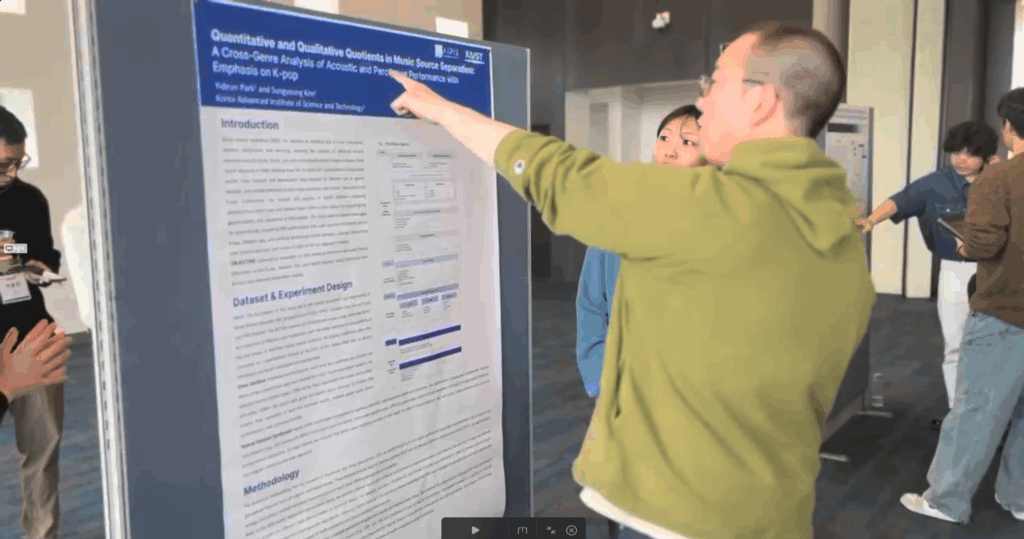
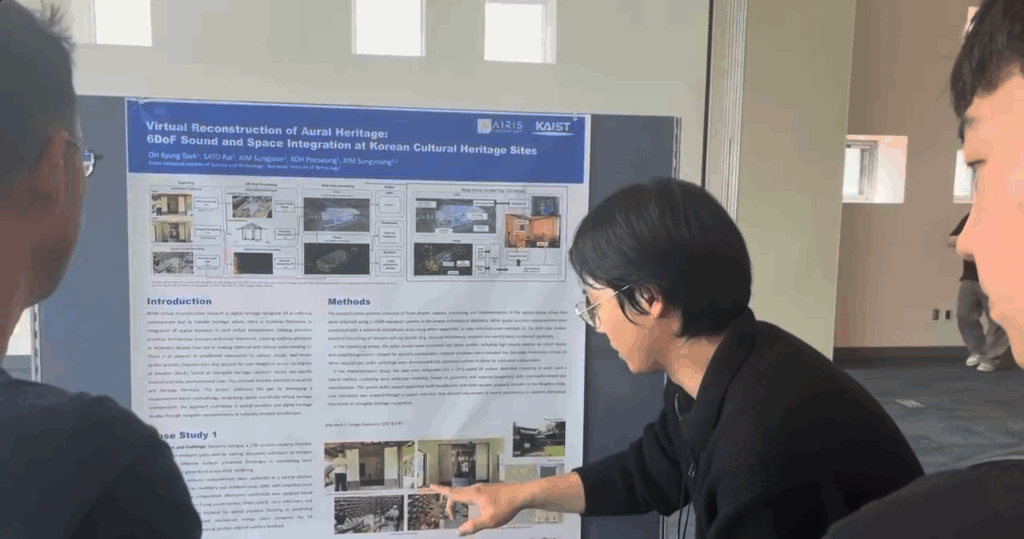
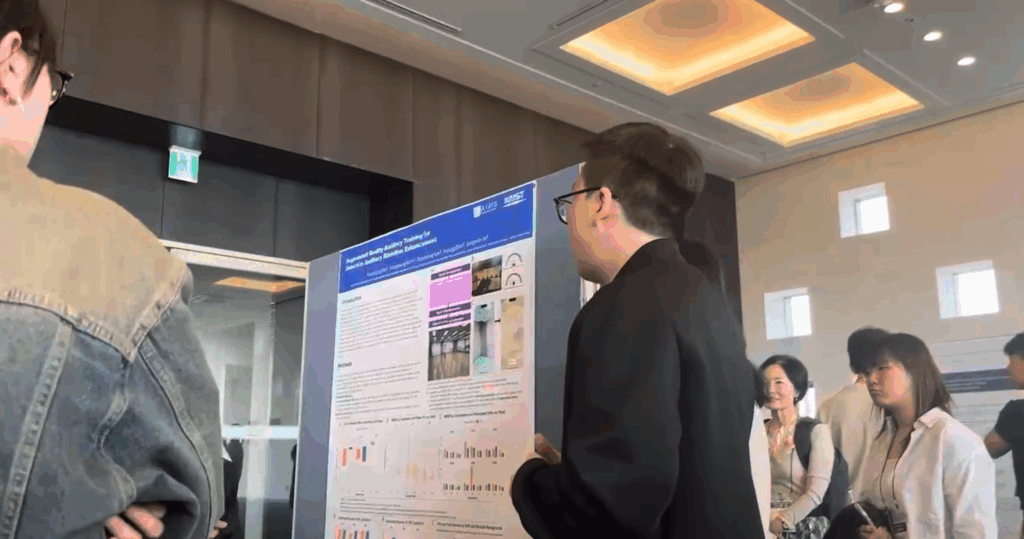
AIRIS Lab was proud to participate in the symposium, with four members presenting their latest research during the poster session.
Pooseung Sean Koh showcased “Augmented Reality Auditory Training for Selective Auditory Attention Enhancement,” demonstrating how AR technology can be harnessed to improve users’ ability to focus on specific sounds in complex auditory environments.
Kangeun Lee presented “Immersive Automatic Audio Panning System Integrated with DAW for Music Production,” introducing a novel system that streamlines spatial audio mixing for music producers by integrating intelligent panning algorithms directly into digital audio workstations.
Kyungtaek Kenny Oh shared “Aural Heritage: 6DoF Reconstruction of Cultural Heritage Sites” which explored how six-degrees-of-freedom audio reconstruction can bring historical sites to life through immersive soundscapes.
Eden Park presented “Quantitative and Qualitative Quotients in Music Source Separation: A Cross-Genre Analysis of Acoustic and Perceptual Performance with Emphasis on K-pop,” offering insights into the challenges and breakthroughs in separating musical sources, with a special focus on K-pop’s unique characteristics.
Through the symposium, we found it both inspiring and invigorating to engage with so many talented researchers and practitioners in music information research. The opportunity to discuss our work with peers, receive thoughtful feedback, and learn about cutting-edge developments in the field was invaluable.